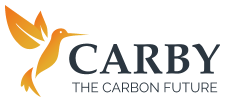Most of the other businesses tokenising carbon credits either:
- Tokenise carbon credits according to their own or some less recognised certification (not Verra or Gold Standard). This is relatively easy as they can set their own rules but undermines the credibility of the tokens issued and does not give access to the bulk of the voluntary carbon market.
- Tokenise Verra carbon credits. This is risky as they are operating against Verra’s terms of service and can be shut down like Klima DAO/Toucan in 2022.
- Provide a tokenised back end to ensure traceability and prevent double-counting.
None of these businesses provide solutions to help small and medium sized carbon projects bridge the funding gap. We do this by enabling projects to sell their future carbon credits to generate the funding they need. We are the only ones doing this.
Initially, we have forecast that 50% of all the revenue from carbon projects will be used for due diligence. This will include reviewing documentation, the project team and a site visit to verify the location and information. From our discussions with projects, our due diligence appears to be more in-depth than some of that carried out by the carbon credit ratings agencies.
Where possible, we will implement real-time data streams and monitoring. This could take the form of satellite images showing forest growth or sensors estimating the carbon saved in cookstoves. This type of digital-monitoring and verification will be easier for projects and is likely to become the standard over the next 5 years.
Finally, we will avoid project types that have proved controversial, such as the forest protection projects criticised by the Guardian in 2023, insulating us from the potential for negative publicity.
After the due diligence process noted above, an NFT representing 1 future carbon credit from a project will be issued. As part of this NFT, there will be a standard carbon credit advance purchase agreement. This will mean that the carbon project is legally obligated to deliver the carbon credits in the time period specified or as soon as possible afterwards to Carby. We will scan the Verra registry and upon the project registering carbon credits, we will automatically present the agreement and have the credits moved to our account for transfer to the buyer.
There is a risk of non-delivery, as with any future project. This is mitigated by us tokenising future carbon credits from many projects, allowing a diversified portfolio of many small parcels of risk rather than concentrated risk in one project.
There are also new carbon credit issuance insurers springing up (Kita, Oka) and we will partner with them to allow buyers to insure future issuance (although this will have a cost).
We already have the contact details of all the Verra projects (over 1000) that have applied but not yet passed through the funding gap. We will hire a multilingual onboarding team to contact those projects directly. We have pre-populated project profiles to decrease the barrier to projects claiming their page. They can then use simple community tools to gather followers and provide updates to their engaged, passionate audience.
Our initial target buyers are cryptocurrency investors. This is because with Klima DAO, they have demonstrated their enthusiasm for tokenised carbon credits, completing $2bn of on-chain transactions in 9 months. They also have a higher risk tolerance, which means they are willing to explore new platforms if there is the potential for significant profit. These investors will be reached by gathering a significant pool of NFTs and releasing them as a token sale, generating excitement and publicity through cryptocurrency channels on Telegram, Discord and Facebook. We assume a marketing cost of £287 per cryptocurrency investor successfully onboarded.
By June 2024, we assume we will also have a corporate early adopter.

